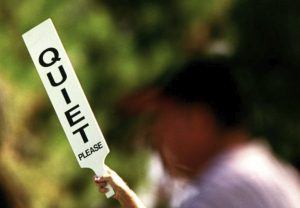Faye Flam at Bloomberg:
 As misinformation weapons go, fake news is sort of like a cannon: noisy and provocative. Innuendo is like a dirty bomb — invisible, toxic and lingering. I became more aware of the misleading uses of innuendo after I spoke with linguistics professor Andrew Kehler during the run-up to the 2016 election.
As misinformation weapons go, fake news is sort of like a cannon: noisy and provocative. Innuendo is like a dirty bomb — invisible, toxic and lingering. I became more aware of the misleading uses of innuendo after I spoke with linguistics professor Andrew Kehler during the run-up to the 2016 election.
Kehler studies something called pragmatic enrichment of language — the way we leave gaps in our utterances which listeners will fill in, allowing us to converse without being impossibly wordy. But by the same token, speakers who want to mislead without literally lying can nudge people to fill is such gaps with their own faulty assumptions.
This happened in the presidential debates, and it happens in advertising and other forms of persuasion. For example, a television commercial might promote Brand X vitamins as having twice the iron as a competitor’s, he said. That may be true. But it implies that more iron will make you healthier, which is likely to be false. (Recent datashow more Americans get too much iron than too little). “We’re always taking more information away from utterances than what is said, and we don’t realize how we are manipulated this way,” he told me.
More here.
